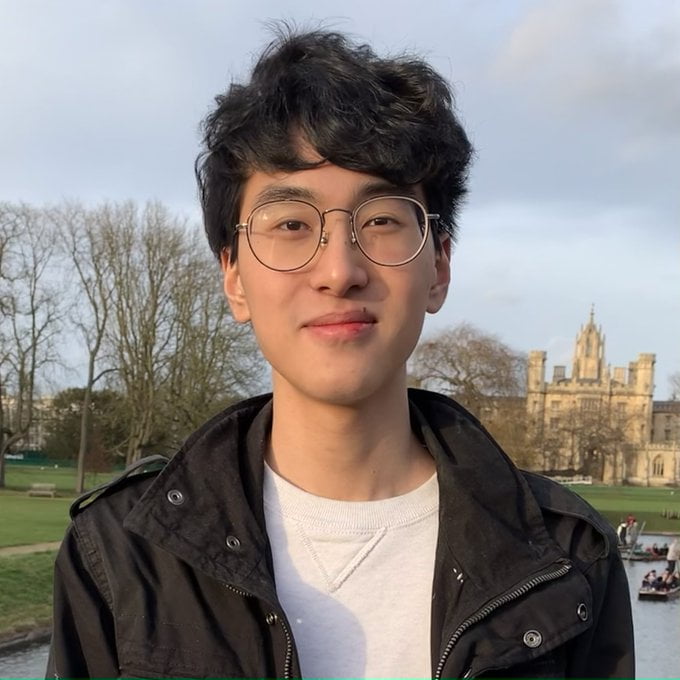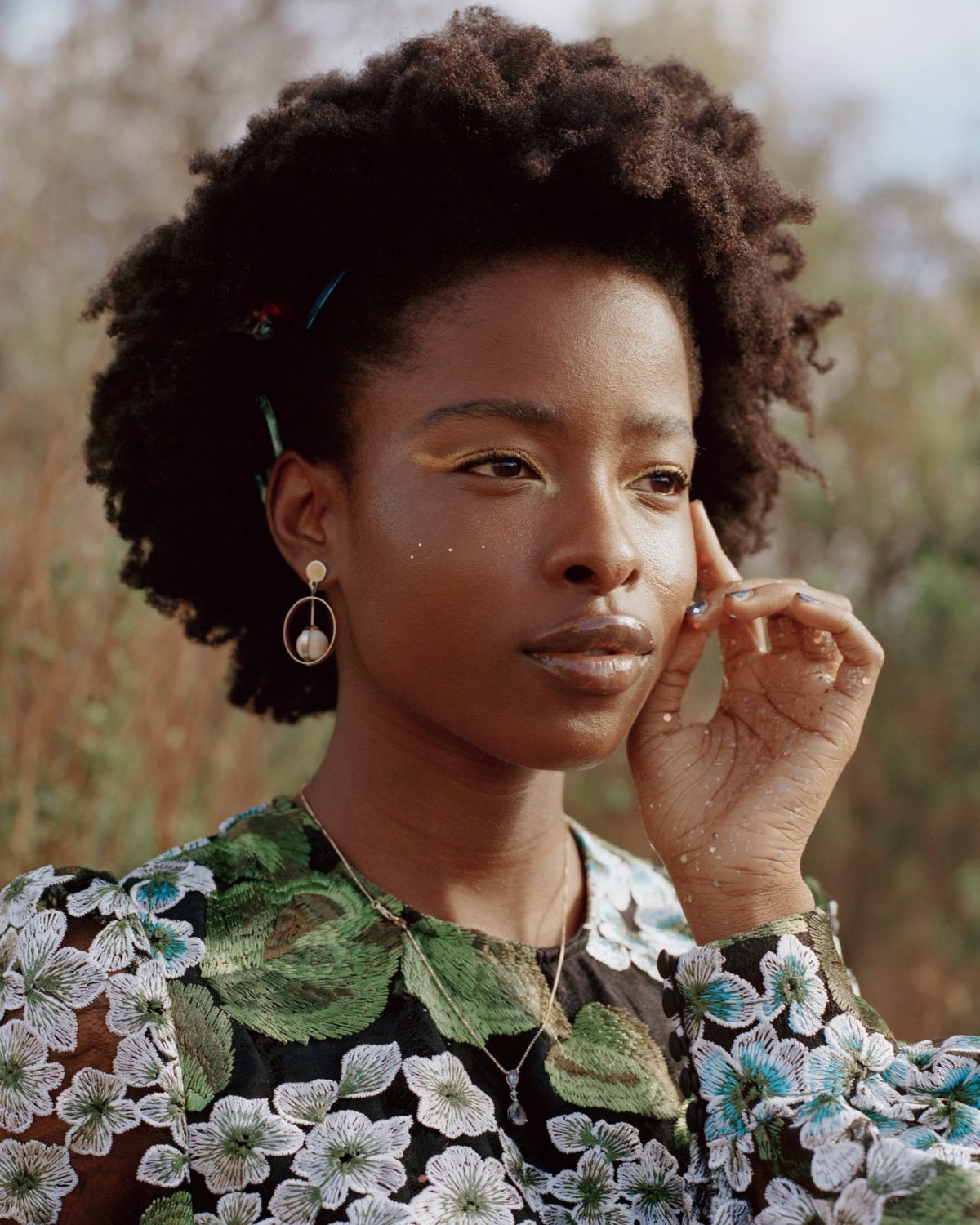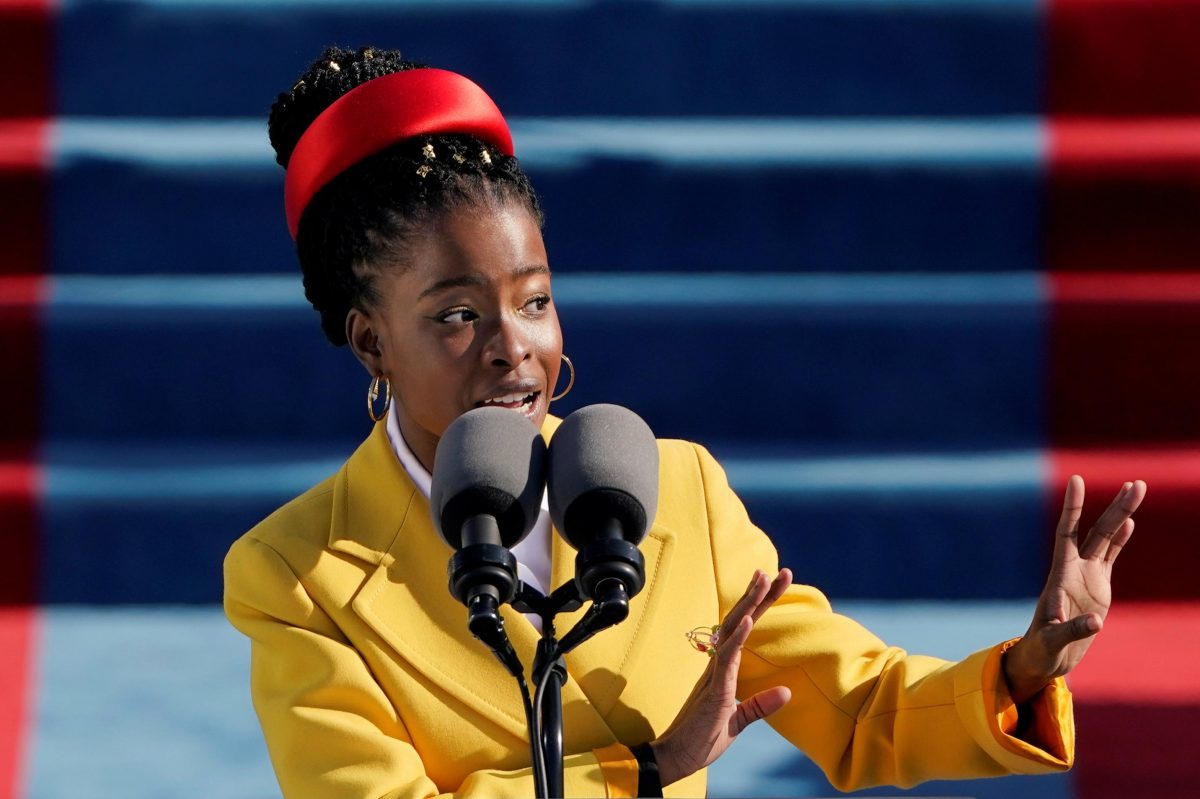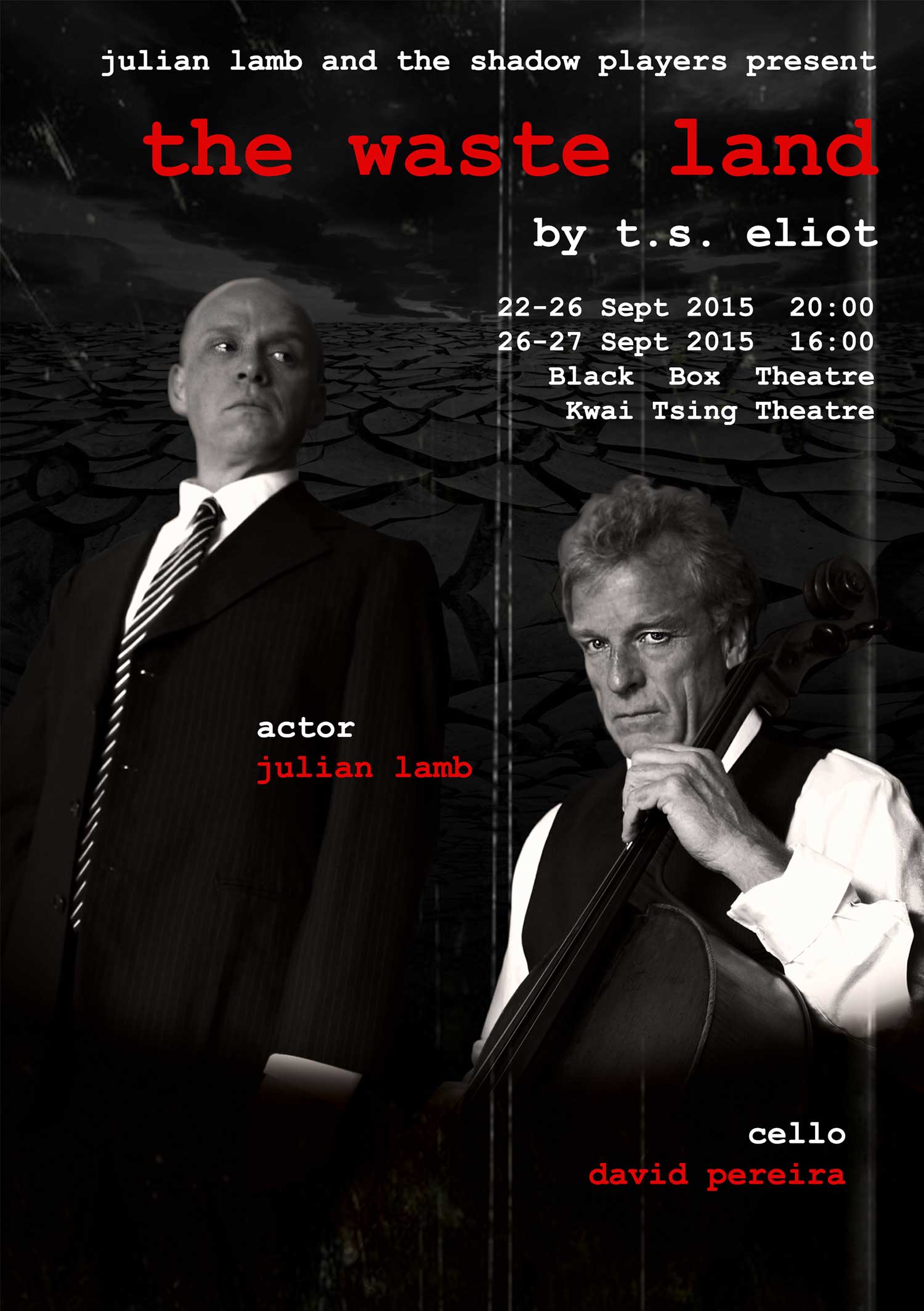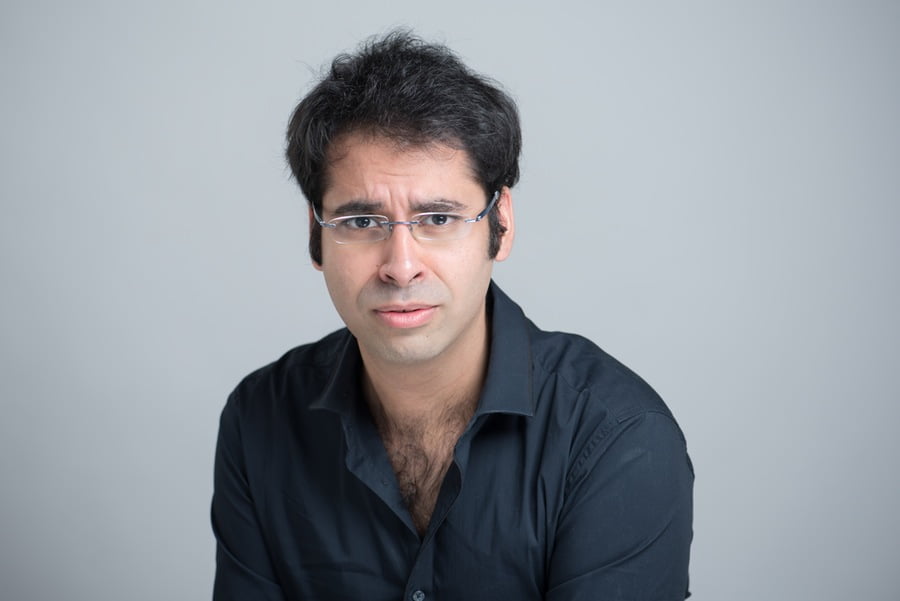
Vishal Nanda is a writer and spoken word performer, as well as an indie game designer, teacher, and editor. He spends his time writing poetry, scripts, screen plays, plays, short stories, novels and the like, as he cannot quite help himself.
Recently, he hosted an event with acclaimed novelist Omar Musa during Hong Kong’s Literary Festival and his poetry has been published in the literary journal Asia Cha. He has performed spoken word poetry at a variety of events, including TEDx Wanchai, comedy shows, fundraisers and on RTHK Radio Three. He can usually be found nervously performing In Lan Kwai Fong most Wednesdays at Orange Peel with the other Peel Street Poets.
How long have you been involved in poetry?
I’ve been writing sort of poetry since I was thirteen, if you could call what I used to write ‘poetry’. It would be more accurate to say that I was trying to write poetry. I am hesitant to call what I write poetry, or to call myself a poet.
It’s quite a grandiose declaration because for good or ill ‘poetry’ still has pretentious connotations. If we had another word for it in English, with the sense that you’re part of a rather large group of aspiring writers maybe in training, that could excise the pretence from the term, like writing ‘pooms’, then that would be more accurate.
Writing pooms was a solo thing for a long time, completely devoid of connection to a larger community, till I ‘joined’ Peel Street. Since then I’ve been writing far more than I have in the past, with far more opportunities to get read or listened to, so in terms of dedicating more time to poetry, I would have to say since joining Peel, which was about three years ago. Since then I’ve been lucky to have more opportunities to write and perform, and it all started with Peel.
Where do you get the inspiration for your writing?
This is a crazy question. It would be hard enough to answer if you were referring to one specific piece I’ve written, let alone for writing as a whole. What was I thinking at the time? What series of events throughout my entire life, my childhood, all the media I have ever consumed, led to me producing that piece of work? How did I have the time to do it? What was I feeling back when I wrote it?
There’s a way to bypass the question entirely, and the assumption behind it, of the creator having agency in the cause. People are computers who take input, all the input our gloriously unique minds are capable of taking as the most powerful processing machines in the known universe, and then output something, like dick in the box, or Game of Thrones, or poetry. Although we have agency in the process we are far from objective observers of that process.
That said, if I had to give a tidier answer then I would abide by something Neil Gaiman said, which I paraphrase as ‘You walk by a dozen stories everyday. A writer notices at least five of them.’ In other words, there are stories and ideas everywhere, and it’s a matter of observation both internally and externally to recognise them.
And although I’m saying there is a lack of agency I don’t think there is a lack of craft. I use Evernote for everything, which means I can write on my phone, my Ipad, my desktop, whatever, it all goes to the same place, and if I have an idea I write it down, I file it away, whether I’m walking or sitting at home. I think there are two extremes for me when it comes to how I end up writing something, with a lot in the middle. I want to emphasise that I’m an amateur.
On the grandscale of global writers I’m just another guy on the cliff hoping to make his way up, but I think there’s some value then in telling you my work ethic, of the method in attempting to climb the cliff because it’s probably similar to a lot of other people who are trying but haven’t quite made it. I write all my ideas down. Sometimes I’ll have an abstract idea that I need to craft into a story- I had one about how children and what might be considered ‘the delusional’ have a lot in common, but how do I contain that in an actual narrative?
So I try to build something, which sometimes takes time, it takes outlines and planning and experimentation and editing. Or I had one about a guy who was ‘time displaced’ and could feel the past of any place he was at and I run with the idea, I imagine being that character and I take the story to it’s logical conclusions.
I don’t believe in writer’s block, my rule is that if I can’t figure out a problem, I’m only allowed to quit if I’ve sat in front of a desk and stared at the page for half an hour to an hour and truly come up with nothing, which I honestly think is a rarity. I try to abide by that rule.
On the other hand, especially with poetry, I’ve found that moments where I’m really emotional, often negatively, at those times writing out a poem is therapy, an itch, I have to get it out there because I feel like I’m going crazy, it’s like taking the chaos of an unformed internal monologue and shaping it into something, and times like those are times where it just flows out in one go.
So it’s both extremes, but I believe in the end it’s consistent work and the determination to see an idea to it’s end, no matter how crap the product, with the faith that it’s still practice and it still counts.
How does Hong Kong influence your writing?
It upsets me. It’s not exactly an ideal place, though it is idolised when it comes to safety, or the MTR or cheap, delicious food. I think a lot of writing, especially in English, when it comes to Hong Kong, attempts to focus on defining the place with the awareness that it’s unique. So that enough readers not familiar with it will find it compelling, it’s like travel writing.
I don’t want to write like that. I think there is a lot of isolation, a lot of unhealthy relationships, toxicity and loneliness here and I think that this is far from limited to this city.
I try to find the universal in the specific, rather than denying what is universal by focusing on the specific. Hong Kong, in the context of us as a species, is a remarkable trailer of a future to come. It has one of the largest income gaps in the world, a disgusting amount of people living in poverty juxtaposed with stratospheric decadence, rampant pollution and corporate-timescale-level-thinking (that is, in quarters, which is somewhat problematic when it comes to climate change), the highest average IQ and life expectancy in the world, cutting edge technology harnessed to make you buy shit you do not need, and a disturbingly high suicide rate among children who don’t fit the requisite mould.
I grew up here and frankly it makes me angry. I also love it, it is my home, and I’ve written celebratory pieces about it too. This is too big of a question to answer; how does Hong Kong influence my writing? If I have to sum it up, I’d say as a living computer I am forced to process it in all it’s neon madness, and that I’d hate to write about fields full of sheep instead.
The amount of silence in such a noisy place is mind boggling. So few people have an actual voice, instead we are bombarded with manicured ads and artificial TV shows claiming to define our existence in Hong Kong. Everywhere you look in Hong Kong, on the walls, on buildings, on magazine covers everywhere, there are words telling you how to be or think, via telling you what to buy, or what is considered of value and this gets to people, this affects us.
In Hong Kong, I try to consider what isn’t being said, but from my very, very narrow perspective. There’s a hell of a lot of noise here. I think a lot of writing at the moment is focused on articulating a perspective that can then be cozily placed in a category like ‘culture’ or ‘gender’ or some space from which the consumer and creator can feel comfortable in being associated with.
What is lost in that movement is the attempt to discover the universal, or even admitting that the state of us as a globalised species, like our genes, is 99.5% similar and cultural fetishisation for the sake of it is a form of self-inflicted blindness.
Hong Kong as an influence, is a noisy place, which inspires me by refusing to keep things simple or quiet, even if most people are rendered silent by it. Mental health is a box I’d like to say I try to fit a lot of my writing into- the state of Hong Kong’s popular perception, treatment and education when it comes to mental health is an absolute disgrace.
Google the government website on mental health, there’s a questionnaire for depression and if you succeed, if you have symptoms that fulfil the requirements for a diagnoses, the website effectively tells you to ‘take it easy’. There’s barely any help. It’s an absolute disgrace, and it’s not the rich that are being let down, they can afford private treatment, it’s the larger majority that have to count on a government doctor with ten minutes every two weeks to see you and the popular stigma that you can’t talk about these things.
The social environment is, in many ways, psychologically toxic. That said I have it easy compared to most people, I’m aware of that, I try to stay aware of my privilege. But the BS is dripping from the walls.
Poem:
Things I wish were or that I could see in the city but don’t because the world is not moulded by the whims of my imagination.
Like when I stop,
Like when I pause, to give a beggar change,
Another hard-eyed walker strides towards us,
He’s from this mangled person’s mysterious past.
He’s got a deformed limb,
He’s engaging in disabled kung fu,
Flipping around on one functional leg,
And beating the shit out of this guy wearing a suit.
Is that as offensive as ignoring him?
At least in my fantasies I pretend to care.
Behind an office lady’s perfume trail,
I surf a happy wake- wish it was colored,
Maybe purple, so I can
Hmmm
Sniff the smell of happy.
It’s not stalking, going in the same direction,
It’s not like there’s any space on the escalator.
See the perfectly looking douchey guy in the suit,
See the way too sultry blouse wearing office girl,
See them engage in Mortal Kombat.
A look passes between them,
Sudden recognition,
Eyes flare
An accusatory YOUUU
One person kicks / the streets clear,
To form an orderly circle.
They pose,
I become one of those dudes in the backdrop,
Moving my hands up and down,
Like in the Super Street fighter backgrounds.
Outside the Landmark,
Fenced-in trees inhale car fumes,
Like hardened smokers talking shit to one another,
About how dumb humans are.
You know the waterfront used to be right by my roots.
Yeah thank the Sun they covered that stuff with concrete. Smelled horrific.
Sometimes on a skyway,
When a double decker passes so close,
I think of jumping, and rolling, then running on the roofs,
But I’d need something to escape from for it to make sense.
Like reality.
Or something to chase.
Like office ladys.
How about the neon signs,
Unravelling to become neon snakes,
They float through the sky like Doctor Who monsters,
Neon eels,
If they touch you, they either electrocute, or seduce,
And next thing you know you’re in a Wanchai strip club being choked to death
By the fairy lights.
I want a class one Tai Tai laden down with shopping bags,
Wearing Armani everything and sunglass occluded eyes,
To walk into HSBC,
Chill as fuck,
And from her shopping bags drop,
Two tommy guns.
With perfect diction, her lines would be:
Everyone be cool this is a robbery.
Any of you pricks move and I’ll execute every last mother fucking one of you.
In my fantasies I don’t bother not to plagiarise,
This is why copyright is unnatural,
Her lipstick is as red as the HSBC logo,
Or the dead kids those terrorists they accidentally funded killed.
Oops, too far, good thing none of this is real.
The Victoria Harbour channel monster would be unfathomable.
Doubly terrifying because of the layers of nasty that film the water,
Would make it invisible till it was a few feet from the surface,
Armoured in plastic bags, translucent scales that warp the image underneath,
Lovecrafted out of Vita Box cartons that inflate and deflate as it breathes,
It’s touch is asthma,
It’s straw appendages piercing skin to suck out all your dreams,
Right through your pupils,
You won’t be able to get a good night’s sleep again,
It will find you in every toilet bowl and stagnant puddle,
The urban mosquitos are it’s eyes.
Skyscrapers are secret spaceships,
Rocket boosters buried in the concrete,
Waiting for the signal,
They lift up all at once,
Hidden steel shutters locking down windows,
For the inevitable space exodus.
Inevitable, in my fantasies at least.
Maybe they are missiles,
Anti-alien weapons,
Filled with angry bankers coked up like Viking berserkers, unable to distinguish friend,
From the ignorant average person investing with them,
They take their ties off, tying to them stationary,
Wielding silken nunchucks against the bugger ships they board,
The antennas and weird spiral shit on roofs were always
Disguised ramming prows.
If all the cars, lorrys and bus’s horned at once,
Would the sound blow out all the buildings glass?
If the PLA in admiralty took on the cops,
Would the triads decide a tie breaker?
I want a crazy brown guy to walk into a crystal shop,
With a tennis racket,
And systematically smash everything at once,
Then maybe buy it all afterwards,
Take that mainland billionaires.
I’m a fucked up patriot in my head.
I want to see ten thousand people take to the streets,
Yelling slogans from the 1970s,
I want to sit cross legged in the middle of the highway
While the Hong Kong police go full police state
And radical students are threatened with pepper spray,
Would be cool to feel a part of history,
Especially to be on the losing side.
I want graffiti on the government buildings,
And street art outside the IFC,
I want a declaration that anyone can be Batman,
Hanging from a skyway.
I want to see it again,
And pretend that a seven million strong city,
Educated and liberal,
Could field one hell of an army
For change.
For a change,
I want my fantasies to be real,
Also
I don’t think theres anything wrong with having an office girl fetish,
I mean I grew up in Hong Kong.
It’s not my fault.
That I want you
to give me
a raise.
Peel Street Poetry is an open mic poetry night at Orange Peel. It runs every Wednesday of the month except the first. The environment is friendly and they love new performers, so come share your poetry or just listen along to some of Hong Kong’s sharpest poetic talents.
Peel Street Poetry Open Mic
Date: 2nd, 3rd, 4th (and 5th) Wednesdays of the month
Venue: Orange Peel
Tickets: Free
More info:
www.peelstreetpoetry.com

